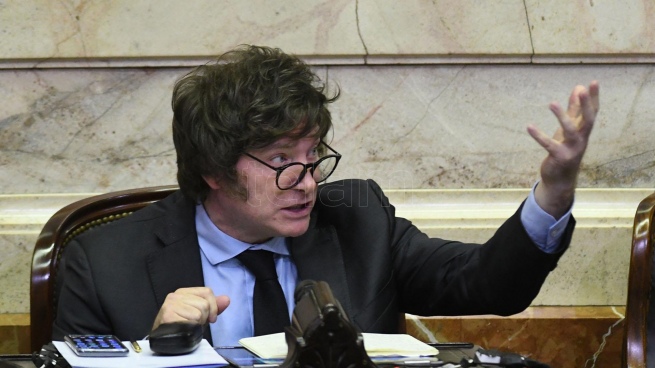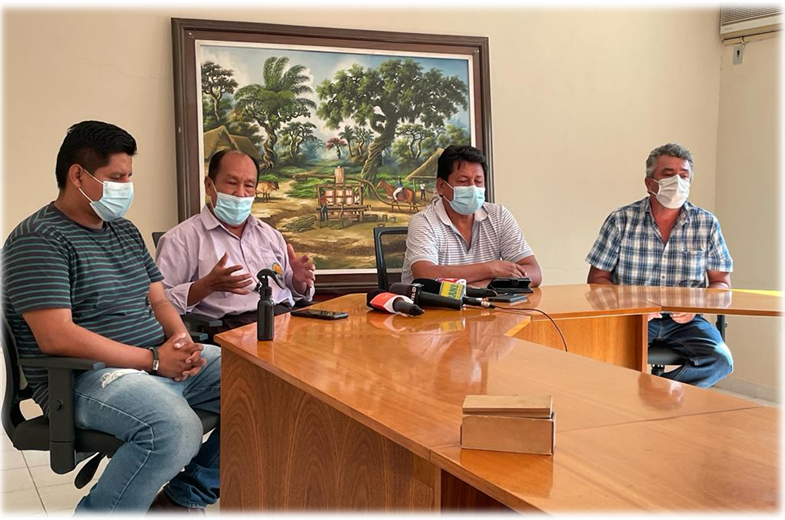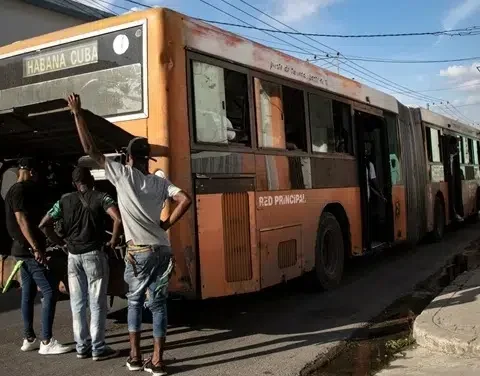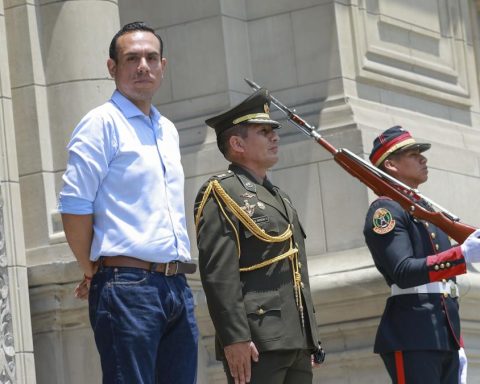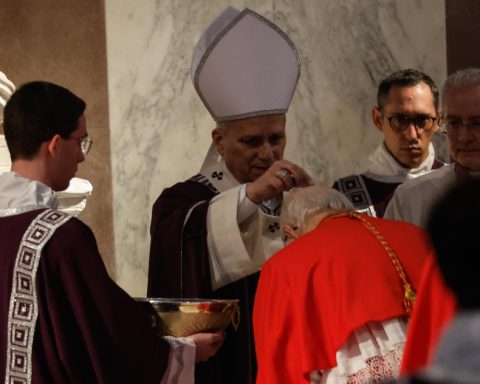The deputy for Libertad Avanza, Javier Mileiannounced that he will present himself as a pre-candidate for president in the 2023 elections and announced that if he were elected “they have to disappear” Télam, National Radio and Public TVand that it would also privatize state companies such as Aerolineas Argentinas, AySA and Correo Argentino, which unleashed a series of rejections by legislators, union representatives and human rights organizations.
Interviewed by Radio Miter, the legislator proposed for this hypothetical scenario a reduction of the State that would include the reprivatization of Aerolineas Argentinas, “which continuously generates losses”, as well as those of Aysa and Argentine Mailand in terms of public communication, he stated that Télam, National Radio and Public TV “have to disappear” because, he said, “they are official propaganda media”, a definition that triggered a series of criticisms.
For Taty Almeidaof the Mothers of the Plaza de Mayo Founding Line, what he said Milei is “deplorable and repulsive” and urged that “people remember and know who he is”, to finally convey his “repudiation” of “this individual’s intentions”, on which he preferred “not to continue commenting, because they would not be the words of a Mother of Plaza of May”.

The proposal to close the public media was also questioned by the leader of the Press Union of Buenos Aires (Sipreba) Agustín Lecchiwho defined it as “undemocratic” and considered that expressions of this nature “attack jobs and freedom of expression.”
From the Congress, the deputy Paul Carro (Front of All-Córdoba) warned that “override voices is not the way” and warned that “transparency or better dialogue is not generated with intolerance.”
“It is clear that a robust debate of ideas is having more diversity of voices, with private for-profit companies, non-profit organizations and also with public agencies,” said Carro, who is a professor of Political Communication at the National University of Córdoba (UNC) and was head of the Communications and Informatics Commission of the Lower House.

Another response from the union sphere came from the general secretary of La Fraternidad, Omar Maturanowho, referring to journalistic activity, assured that “in any country there are public media and national private companies.”
Meanwhile, the Buenos Aires legislator claudia neira (FdT) considered that “you can’t seriously debate with Milei”since “it screams magical solutions that are impracticable”, and stated that “it does not have a single proposal to improve people’s lives”.
“He wants to end our currency, with the Central Bank, with the media and public companies. He doesn’t drop an idea to improve things, he just closes, eliminates and ends everything,” warned the deputy from CABA.
Taty Almeida urged that “people have memory and know who is” Milei.
This Monday, in his radio statements, Milei insisted on privatizing Aerolineas Argentinaswhich he defined as an “expensive” and “absolutely unfair” company, which generates “deficits” that “those who cannot fly pay, to the benefit of those who fly and those who are inside the company.”
Regarding the economic program that he would implement in case of reaching the Government, he based it on “a monetary and financial reform” inspired by Panama, “where the currency of your choice can circulate.”
As well spoke out against popular demonstrations occupying the street, which he described as “unacceptable” because “they don’t even let those who generate wealth work, which is where what they are paid comes from.”
For Milei, the protesters “invade the Capital” and to solve it “we must take power away from the organizations that manage them and that the administration of that is done by those who have a direct relationship with the people, the mayors.”
Among all his definitions, his statements about state companies and public media generated a controversy that included references to the diversity of voices, such as the one used by Sipreba, from where they stressed that “the role of public media is to guarantee pluralism” .
“Among our fights as a union is the defense of the public media and their social function. That not only all the political voices be on their agendas but also those of all the actors and social sectors, including those that the big media silence,” he confirmed. the trade unionist Lecchi.
